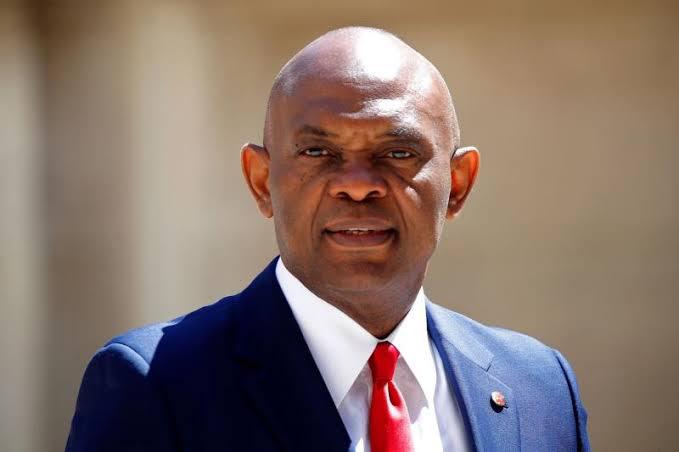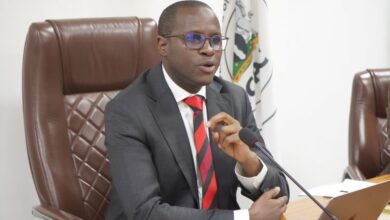A new generation of African entrepreneurs

On March 22, at the Transcorp Hilton, Abuja, the Tony Elumelu Foundation unveiled its 11th cohort of 3,000 young entrepreneurs from 54 African countries, and they will receive the traditional funding, training and mentorship.
It is an incredible opportunity that Tony Elumelu, a leading African investor and philanthropist, and his wife, Awele, a medical doctor and entrepreneur (co-founders of the foundation), created through the TEF Entrepreneurship Programme, “to drive poverty alleviation, catalyse jobs, and ensure an inclusive economic environment”.
March 22 is Tony Elumelu’s birthday, and it is the day each cohort is unveiled every year. My birthday is March 21 – just one day apart.
Although the Tony Elumelu Foundation was founded in 2010 with a vision of a self-sustaining and prosperous Africa powered by the energy of innovation and resilience of its young men and women, it was not until five years later that the TEF Entrepreneurship Programme was launched. The goal at the time was to empower 10,000 entrepreneurs in 10 years with US$100m, but the good news is that the foundation has now funded 24,000 entrepreneurs–a remarkable achievement–within the period.
Since 2015, these 24,000 Africans have created 1.5 million jobs and generated US$4.2bn in revenue, while lifting over two million Africans out of poverty. As a mentor of the programme, I should know. The inspiring stories of these young entrepreneurs and the impact they are making are changing the economic landscape of Africa. Each Tony Elumelu entrepreneur receives a non-refundable seed capital of US$5,000. If we do the math, the 2025 cohort of 3,000 entrepreneurs will receive US$15m (about N23bn). The foundation embodies the philosophy of Africapitalism, Elumelu’s belief that African entrepreneurs are the key drivers of the continent’s economic transformation.
What these young entrepreneurs also receive is a world-class business training on TEFConnect, one-on-one mentorship, and access to global networks and investment opportunities.
But Elumelu’s approach to philanthropy is to leverage influence and impact. This explains why TEF has been able to forge strategic global partnerships to further scale the 2025 TEF Entrepreneurship Programme in collaboration with Google.org, the UAE Office of Development Affairs, Khalifa Bin Zayed Al Nahyan Foundation (an affiliate of Erth Zayed), and Deutsche Investitions und Entwicklungsgesellschaft.
Apart from launching this noble initiative with his wife, Elumelu is also the chairman of the United Bank for Africa and group chairman of Heirs Holdings, an African investment conglomerate.
By the way, the recently released financial report for 2024 showed that UBA Group grew its profit after tax to N766.6bn, a 26.14 per cent increase from N607.7bn in 2023.
Is it not better to be taught how to fish, as the popular saying goes, than to be given a handout of fish? From the moment you set up a business, you can learn the ropes and avoid burning your fingers. Make no mistake about it, mistakes will be made, but the basic ingredients in your business plan should include a description of the business, vision, mission and values; competitive advantages, market analysis, organisational structure, products and/or services, marketing strategy, financial projections and funding request, if applicable.
In a previous article five years ago, this was what I wrote: “The TEF founder says entrepreneurship is the most effective way to establish true prosperity, and he has continued to expand his vision to touch lives by providing seed money for young African entrepreneurs. But more importantly, the TEF founder wants a paradigm shift from the existing narrative whereby Africa depends largely on aid from multilateral institutions; it is not sustainable, and it confers on Africa a weaker negotiating position in international trade.”
On a penultimate Saturday, Elumelu reiterated his unwavering belief in the potential of Africa’s entrepreneurs: “Today is the day we dedicate each year to democratise luck, spread hope, and create economic opportunities for young Africans across the continents.
“When my wife and I founded TEF in 2010, we recognised the challenges young African entrepreneurs face, the barriers that stand in their way of ambition and their drive for Africa’s economic transformation.”
Elumelu also told the audience that he had always believed immense opportunities existed in Africa and understood the power of transformative entrepreneurship. “I also know the obstacles,” he continued. “But I am certain that if we empower and invest in our young people, they will be the ones to solve Africa’s pressing challenges.”
Elumelu, through the foundation, which is the philanthropic arm of Heirs Holdings, never hides his passion of creating enduring prosperity and social wealth in Africa by empowering entrepreneurs and enhancing the competitiveness in the private sector.
These young entrepreneurs, demonstrating their talent, vision and ambition, represent the beacons of enterprise, and they are poised to create “enduring wealth” in Africa as the programme continues to scale. Out of the over 200,241 applications received on TEFConnect, TEF’s proprietary digital platform (40 per cent were women), only 3,000 (1.5 per cent) made the cut for 2025 after a rigorous and highly competitive selection process by Ernst & Young, to ensure independent assessment.
Applicants were assessed on their financial understanding and entrepreneurial mindset, as well as the feasibility, demand and scalability of their business ideas. About 48 per cent of the successful applicants are Nigerians, which is clearly a reflection of our population compared to the rest of Africa. The breakdown showed the sectors represented included agribusiness (34 per cent), creative industry (11 per cent), green economy (11 per cent), among other sectors.
Although 24,000 African entrepreneurs have been empowered so far since the inception of TEF, Elumelu knows that there are millions also waiting to receive grants to start their businesses. This is why at every given opportunity, the TEF chairman continues to advocate globally for a shift from aid to investment. “In the 21st century, what Africa needs is not charity; it is investment in infrastructure, in businesses and, most importantly, in our young people, because the future of Africa lies in their hands,” he said confidently.
In her message of encouragement, Dr. Awele Elumelu, TEF co-founder, congratulated and praised the young entrepreneurs. “We are incredibly proud of you and excited to witness the impact that you will create,” she said. Awele also acknowledged those who were not selected this year, and asked them to keep their entrepreneurial dreams alive.
Some of the TEF alumni, who shared testimonials, include Tabitha Arenson Abimiku, 2018 Alumnus and founder of Virtuous Pads; Ayodele Ognin, 2019 Alumnus and founder of Wurami Consulting, and Mohamed Dhaoufi, 2017 Alumnus and founder of Cure Bionics.
As these young African entrepreneurs of the 2025 cohort pursue their dreams, they need all the support and encouragement that they can get. When you listen to the stories of entrepreneurs, funding is always a major obstacle.
TEF alumni are forever thankful to the TEF for helping them overcome this challenge.
“I had an idea but I lacked the resources and did not have any network,” Abimiku, 2018 alumnus and founder of Virtuous Pads, a multiple-award-winning social enterprise, lamented some years ago. “There was also no strategic direction, but from the seed funding, we raised an additional US$50,000. We have been able to distribute more than a million reusable and washable pads across Africa.”
There are similar stories of impact that would not be forgotten in a hurry, thanks to the Tony Elumelu Foundation.
•Braimah, a public relations consultant and marketing strategist, writes via [email protected]





